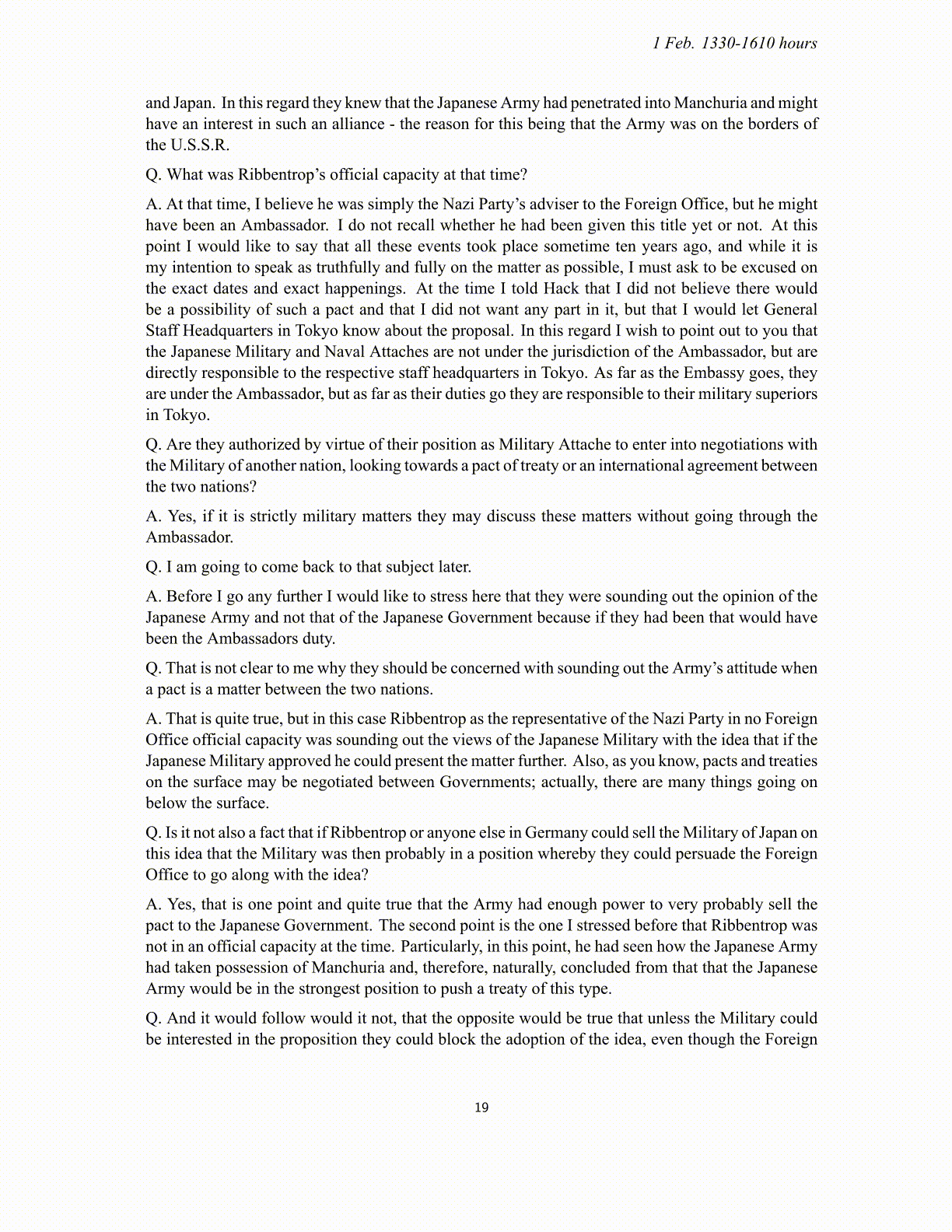
1 Feb. 1330-1610 hours and Japan. In this regard they knew that the Japanese Army had penetrated into Manchuria and might have an interest in such an alliance - the reason for this being that the Army was on the borders of the U.S.S.R. Q. What was Ribbentrop’s official capacity at that time? A. At that time, I believe he was simply the Nazi Party’s adviser to the Foreign Office, but he might have been an Ambassador. I do not recall whether he had been given this title yet or not. At this point I would like to say that all these events took place sometime ten years ago, and while it is my intention to speak as truthfully and fully on the matter as possible, I must ask to be excused on the exact dates and exact happenings. At the time I told Hack that I did not believe there would be a possibility of such a pact and that I did not want any part in it, but that I would let General Staff Headquarters in Tokyo know about the proposal. In this regard I wish to point out to you that the Japanese Military and Naval Attaches are not under the jurisdiction of the Ambassador, but are directly responsible to the respective staff headquarters in Tokyo. As far as the Embassy goes, they are under the Ambassador, but as far as their duties go they are responsible to their military superiors in Tokyo. Q. Are they authorized by virtue of their position as Military Attache to enter into negotiations with the Military of another nation, looking towards a pact of treaty or an international agreement between the two nations? A. Yes, if it is strictly military matters they may discuss these matters without going through the Ambassador. Q. I am going to come back to that subject later. A. Before I go any further I would like to stress here that they were sounding out the opinion of the Japanese Army and not that of the Japanese Government because if they had been that would have been the Ambassadors duty. Q. That is not clear to me why they should be concerned with sounding out the Army’s attitude when a pact is a matter between the two nations. A. That is quite true, but in this case Ribbentrop as the representative of the Nazi Party in no Foreign Office official capacity was sounding out the views of the Japanese Military with the idea that if the Japanese Military approved he could present the matter further. Also, as you know, pacts and treaties on the surface may be negotiated between Governments; actually, there are many things going on below the surface. Q. Is it not also a fact that if Ribbentrop or anyone else in Germany could sell the Military of Japan on this idea that the Military was then probably in a position whereby they could persuade the Foreign Office to go along with the idea? A. Yes, that is one point and quite true that the Army had enough power to very probably sell the pact to the Japanese Government. The second point is the one I stressed before that Ribbentrop was not in an official capacity at the time. Particularly, in this point, he had seen how the Japanese Army had taken possession of Manchuria and, therefore, naturally, concluded from that that the Japanese Army would be in the strongest position to push a treaty of this type. Q. And it would follow would it not, that the opposite would be true that unless the Military could be interested in the proposition they could block the adoption of the idea, even though the Foreign 19